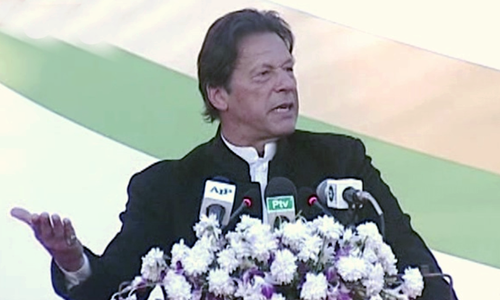THE latest attempt to try and redefine the powers of the National Accountability Bureau, and the manner in which it was done, shows that the aggressive ‘accountability drive’ the PTI launched when it came to power is now in its dying throes.
The redefinition is actually an attempt at a surgical clipping away of the bureau’s powers to even begin an inquiry — let alone investigate, detain and prosecute — wealthy businessmen in particular. The change is being made through a presidential ordinance, as the government does not seem to be able to muster the numbers in parliament to pass legislation — not least because of this very same ‘accountability drive’.
The approval and announcement of the ordinance itself was marred by confusion as whole clauses asked for by the powerful secretaries’ group of the bureaucracy were jettisoned from the final text before promulgation, but communicated to the media nonetheless.
What will emerge from the confusion once the dust settles is a compromise within a compromise. NAB’s powers had to be clipped because the bureau’s monumental incompetence and overweening ambition had caused it to cast its net far wider than it could manage.
But the ordinance has created a double standard, and may well have let the cat out of the bag in the process. All matters related to taxes as well as transactions that do not involve holders of public office will no longer be within NAB’s remit; instead, they will be dealt with by the numerous institutions that already exist for the purpose, such as the FBR, FIA and the accountability courts.
Also, when pursuing cases where the allegation is ‘misuse of authority’ by a public office holder, the bureau will need to prove that there was some material benefit that the accused gained from this alleged ‘misuse of authority’, rather than turning the allegation into the crime itself.
A number of critical questions arise. For one, why can’t there be one across-the-board standard by which to activate the powers of NAB, whether for private or public individuals and transactions? Second, what will the fallout be of these changes on the countless NAB cases already under way, or in appeal, including those in which public office holders are implicated?
Clearly, the ‘aggressive accountability drive’ launched by the government last year has hit its limits and is now being rolled back, leaving behind lacunae and unanswered questions. What this episode teaches us is that, ultimately, accountability is about the writ of the state. If its writ is weak, the weakness will be exploited by all manner of people, whether public or private, for personal gain, and no effort to create new authorities and carve out special laws will fill that void. Perhaps it is time to shut down NAB and focus on strengthening the writ of the state across the board.
Published in Dawn, December 29th, 2019













































